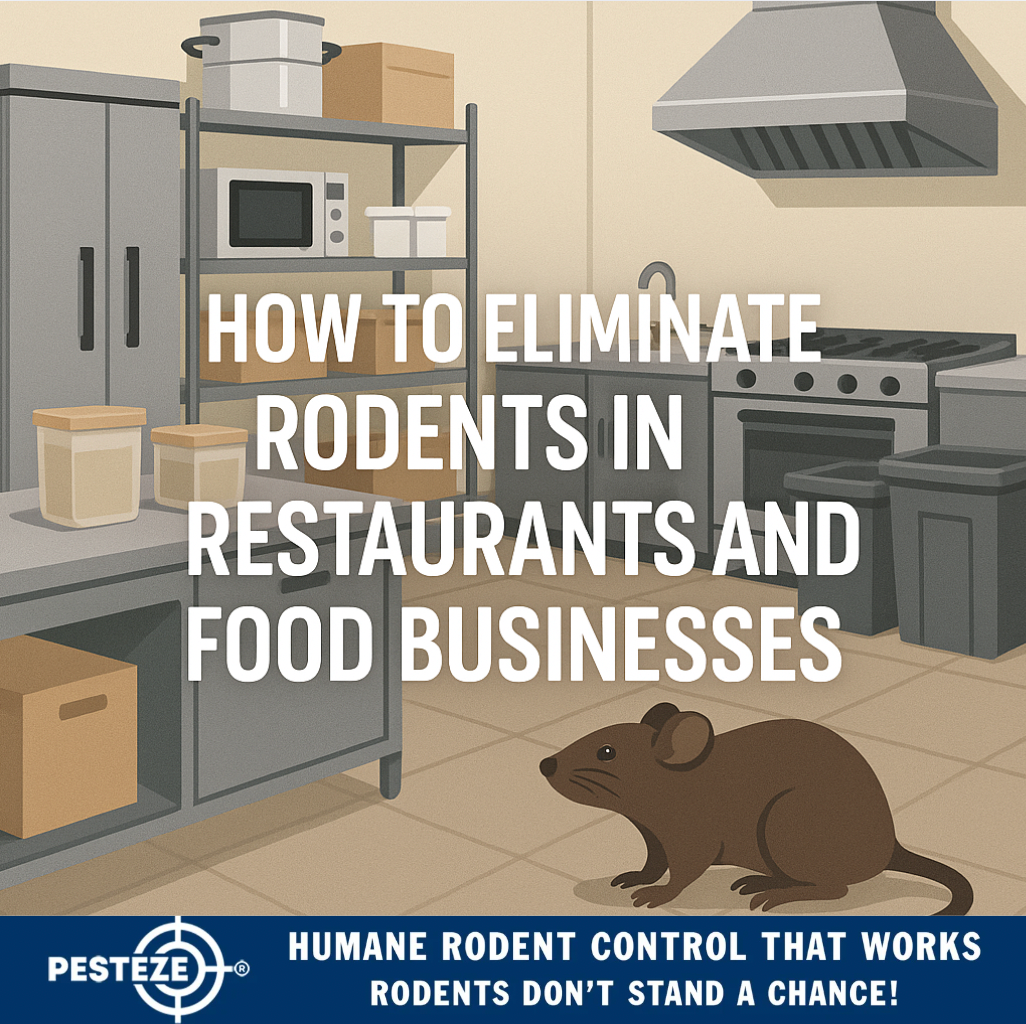HOW TO ELIMINATE RODENTS IN RESTAURANTS AND FOOD BUSINESSES

HOW TO ELIMINATE RODENTS IN RESTAURANTS AND FOOD BUSINESSES
SUMMARY
Rodents pose serious risks to restaurants and food businesses by contaminating products and damaging reputations. This guide covers effective strategies to eliminate rodents and maintain health and safety compliance.
FEATURES
-
Strict Sanitation: Daily cleaning of floors, counters, and storage areas.
-
Secure Food Storage: Airtight containers and pest-proof shelving.
-
Seal Entry Points: Close gaps in walls, doors, and utility lines.
-
Regular Inspections: Monitor kitchens, pantries, and waste areas.
-
Pest-Proof Waste Management: Sealed bins and frequent disposal.
-
Professional Pest Control: Routine commercial pest management services.
DESCRIPTION
Rodents in restaurants and food businesses present more than just a nuisance—they are a health code violation waiting to happen. Infestations can result in food contamination, failed inspections, and loss of customer trust. To eliminate rodents in these high-risk environments, strict sanitation and professional prevention strategies are essential.
The foundation of rodent control in food establishments is sanitation. Daily cleaning of food prep surfaces, kitchen floors, storage shelves, and behind appliances prevents rodents from finding food scraps or grease to feed on. Establishing a cleaning schedule ensures nothing is overlooked.
Food storage practices also play a vital role. All dry goods, ingredients, and snacks should be kept in airtight containers or sealed packaging. Shelves should be made of metal or plastic, as wooden shelving can be chewed by rodents. Keeping food elevated at least six inches off the floor reduces accessibility.
Entry points are another major vulnerability. Rodents can squeeze through small gaps near doors, windows, and pipes. Sealing these with caulk, steel wool, or mesh is crucial to prevent access. Automatic door sweeps and tightly fitting screens can further reduce entry opportunities.
Regular inspections help catch infestations early. Restaurant managers should check pantries, storage rooms, and garbage areas for droppings, gnaw marks, or nests. Staff training ensures that everyone knows the signs and can report issues quickly.
Waste management must also be rodent-proof. Trash bins should have tight lids, and garbage should be removed from the premises frequently. Outdoor dumpsters should be located away from entrances and cleaned regularly to avoid attracting pests.
Finally, professional pest control is highly recommended for food businesses. Licensed providers can perform regular treatments, install monitoring devices, and tailor solutions to commercial kitchens and storage facilities. Their expertise ensures compliance with local health codes and long-term protection against infestations.
By combining sanitation, secure storage, sealing, inspections, waste management, and professional services, restaurants and food businesses can eliminate rodents and maintain a safe, trusted environment for their customers.
- Saharsh Bansal


Comments 0